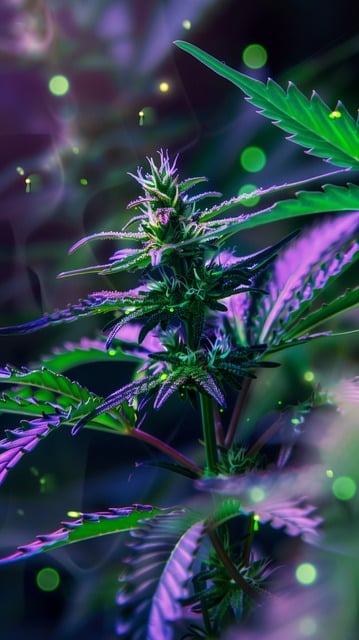Delta-9-tetrahydrocannabinolic acid (THCA), a non-psychoactive cannabinoid found in the Cannabis sativa plant, is being recognized for its anti-inflammatory effects and potential therapeutic benefits. Studies show that THCA engages with the endocannabinoid system by interacting with CB1 and CB2 receptors, which helps to modulate immune responses and reduce inflammation without psychoactive side effects. Research indicates that THCA flower can potentially alleviate conditions like arthritis by inhibiting pro-inflammatory cytokines and enzymes responsible for inflammation, making it a promising alternative treatment. Ongoing scientific research continues to explore its anti-inflammatory potential as a natural agent for managing inflammatory diseases. Users should approach THCA flower with caution due to mild side effects such as dry mouth or drowsiness, and it is advisable to start with a low dose and consult healthcare professionals before incorporating it into health routines, especially when used alongside other medications or for those with existing health conditions. The anti-inflammatory effects of THCA flower are being increasingly recognized, making it a subject of growing interest in the medical community for its potential health benefits.
Exploring the therapeutic potential of THCA flower, this article delves into its anti-inflammatory properties and the scientific backing that supports these effects. From understanding the chemical composition influencing inflammation to evaluating user experiences with consumption, we provide a comprehensive overview of the benefits and side effects associated with THCA flower use. Safety considerations and dosage guidelines are also discussed to ensure informed usage. Join us as we uncover the multi-faceted role of THCA flower in addressing inflammatory conditions.
- Unraveling THCA Flower and Its Anti-Inflammatory Properties
- The Chemical Composition of THCA and Its Impact on Inflammation
- THCA Flower: Potential Benefits and Side Effects
- Scientific Evidence Supporting the Anti-Inflammatory Effects of THCA
- User Experiences: Analyzing the Effects of THCA Flower Consumption
- Safety Considerations and Recommended Dosage for THCA Flower Use
Unraveling THCA Flower and Its Anti-Inflammatory Properties
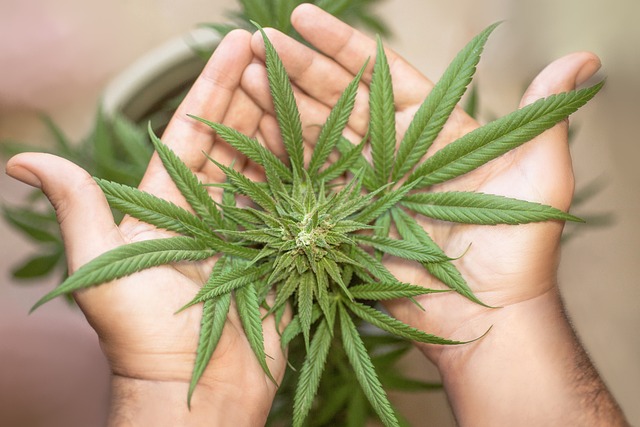
Delta-9-tetrahydrocannabinolic acid (THCA) is the non-psychoactive precursor to the well-known compound THC found in the cannabis plant. Research into the therapeutic properties of THCA has shed light on its potential anti-inflammatory effects, which are garnering significant attention within the medical community. Studies have shown that THCA interacts with the body’s endocannabinoid system through its receptors, CB1 and CB2, modulating immune responses and exhibiting a notable anti-inflammatory profile. This action is believed to be due to THCA’s ability to inhibit pro-inflammatory cytokines and enzymes that play a role in inflammation pathways. The anti-inflammatory effects of THCA flower are particularly promising for individuals suffering from conditions like arthritis, where chronic inflammation is a hallmark. Furthermore, the non-psychoactive nature of THCA makes it an attractive candidate for therapeutic use without the psychoactive side effects associated with its isomer, delta-9-THC. As such, the potential of THCA flower as a natural and effective anti-inflammatory agent continues to be explored through scientific investigation, offering hope for those seeking alternative treatments for inflammatory diseases.
The Chemical Composition of THCA and Its Impact on Inflammation

Tetrahydrocannabinolic acid (THCA) is a non-psychoactive cannabinoid found in the Cannabis sativa plant, often preceding its psychoactive form, THC, when exposed to heat or light. The chemical structure of THCA includes a phenolic group and an acidic carboxyl group, which contribute to its unique properties. These structural elements enable THCA to interact with the body’s endocannabinoid system, particularly the CB1 and CB2 receptors, influencing various physiological processes. Notably, studies have indicated that THCA may exert potent anti-inflammatory effects. Its ability to modulate immune responses and reduce cytokine production is a subject of growing scientific interest. The anti-inflammatory properties of THCA are believed to stem from its interaction with the endocannabinoid system, which plays a critical role in maintaining homeostasis within the body. This interaction can help regulate immune cell function and dampen inflammatory responses associated with conditions like arthritis and colitis, offering potential therapeutic benefits for individuals suffering from inflammation-related disorders. The anti-inflammatory effects of THCA are attributed to its direct influence on the CB2 receptors, which are predominantly found on immune cells, thus making it a compelling area of research for developing new treatments aimed at reducing inflammation without the psychoactive side effects typically associated with cannabis.
THCA Flower: Potential Benefits and Side Effects
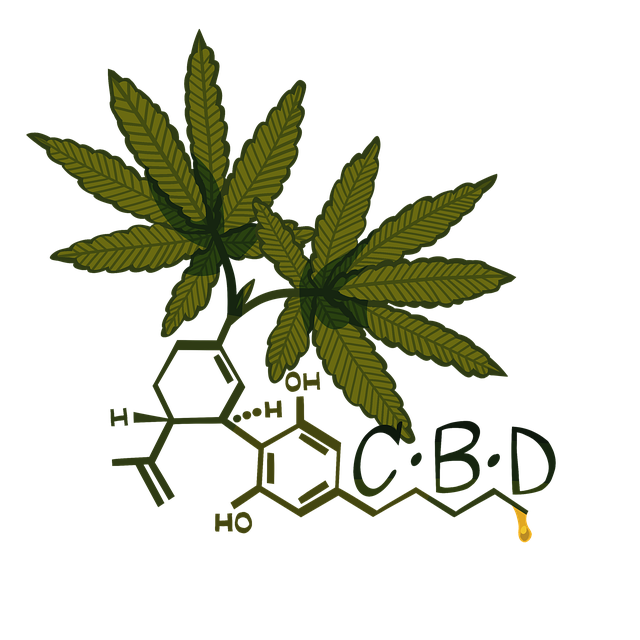
delta-9-tetrahydrocannabinolic acid (THCA) flower, found in the Cannabis sativa plant, possesses a range of potential therapeutic properties. One of its notable benefits is its anti-inflammatory effect, which has been studied for its role in alleviating symptoms associated with various inflammatory conditions. Preclinical research suggests that THCA may inhibit certain enzymes and molecules linked to inflammation and pain, offering a natural alternative for pain management. Additionally, the flower’s interaction with the body’s endocannabinoid system could contribute to its anti-inflammatory effects, potentially benefiting individuals with arthritis or other inflammatory diseases.
While the therapeutic potential of THCA flower is promising, it’s important to approach its consumption with caution. Although THCA itself does not produce psychoactive effects like its decarboxylated form, delta-9-tetrahydrocannabinol (THC), side effects can still occur. These may include mild psychoactive effects if the flower is improperly stored or decarboxylated, as well as potential interactions with other medications. Dry mouth, red eyes, and mild anxiety are also possible side effects associated with the use of THCA flower. Users should start with a low dose to gauge individual sensitivity and consult with a healthcare professional before incorporating THCA flower into their health regimen, especially if they have underlying health conditions or are taking other medications.
Scientific Evidence Supporting the Anti-Inflammatory Effects of THCA

delta-9-tetrahydrocannabinolic acid (THCA) is the non-psychoactive precursor to THC found in cannabis flowers. Emerging scientific evidence has highlighted the potential anti-inflammatory effects of THCA, which may be harnessed for therapeutic purposes. Preclinical studies have demonstrated that THCA exhibits anti-inflammatory properties through various mechanisms. It is thought to inhibit certain pro-inflammatory cytokines and enzymes involved in the inflammatory response, such as cyclooxygenase (COX) and lipooxygenase (LOX) pathways. Research has shown that THCA can modulate the activity of these enzymes, thereby reducing the production of inflammatory mediators like prostaglandins and leukotrienes, which are known to contribute to the inflammation process. These findings suggest that THCA could be beneficial in conditions characterized by excessive inflammation, such as arthritis, multiple sclerosis, and various skin disorders. Further research is necessary to fully understand the extent of its anti-inflammatory capabilities and how it might be applied in clinical settings to alleviate symptoms associated with inflammation.
User Experiences: Analyzing the Effects of THCA Flower Consumption
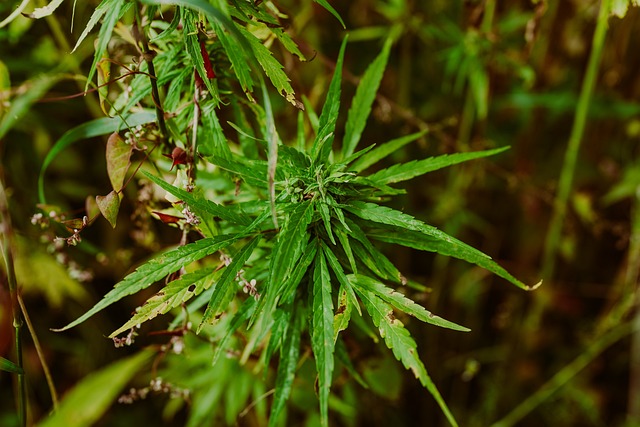
Users have reported a variety of experiences upon consuming THCA flower, with particular attention to its potential anti-inflammatory effects. Initial anecdotal evidence suggests that some individuals have found relief from inflammatory conditions such as arthritis and muscular soreness after using THCA flower. The cannabinoid is believed to interact with the body’s endocannabinoid system, which plays a role in regulating pain, inflammation, and immune responses. Users often describe sensations of relaxation and reduced discomfort, which may be attributed to these anti-inflammatory properties. It’s important for consumers to approach such experiences with caution, as individual reactions can vary greatly due to differences in metabolism, tolerance, and the specific strain or concentration of THCA in the flower.
Furthermore, while some users report positive effects on inflammation, others have noted varying levels of side effects. These can range from mild, such as dry mouth or drowsiness, to more severe reactions like anxiety or paranoia, particularly at higher doses. It’s crucial for users to start with low dosages and consult with healthcare professionals before incorporating THCA flower into their wellness regimen, especially if they have underlying health conditions or are taking other medications. The ongoing study of THCA flower continues to shed light on its potential benefits and side effects, emphasizing the need for further research to fully understand its impact on human health. Users’ experiences contribute valuable data to this growing body of knowledge, highlighting the importance of both personal and scientific exploration in the realm of cannabinoid therapy.
Safety Considerations and Recommended Dosage for THCA Flower Use
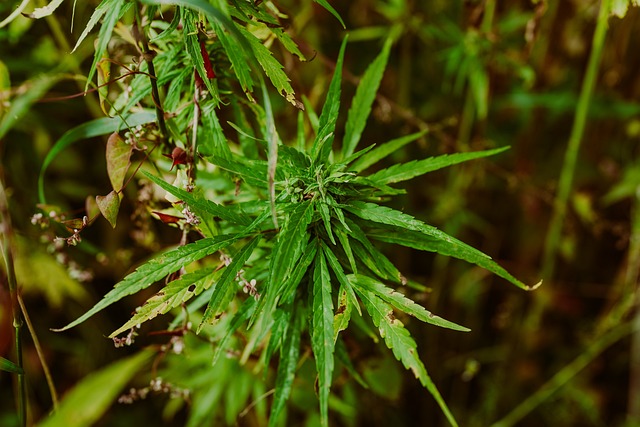
When incorporating THCA flower into one’s wellness regimen, it is imperative to consider the safety implications and proper dosage guidelines. The non-psychoactive precursor to THC, tetrahydrocannabinolic acid (THCA), has been found to exhibit potent anti-inflammatory effects, which may be beneficial for individuals seeking natural relief from inflammation-related conditions. Safety considerations for THCA flower use are critical, as with any dietary supplement or herbal remedy. Potential side effects, though rare, can include mild drowsiness, dry mouth, and occasional mild gastrointestinal discomfort. These minor adverse reactions typically subside once the body adjusts to the compound. It is advisable for users to start with a low dosage to gauge individual sensitivity and to avoid overconsumption, which could potentially lead to more pronounced side effects. The recommended dosage often begins at around 1-5 milligrams of THCA per day, depending on the user’s body weight, tolerance, and the specific condition being addressed. It is always recommended to consult with a healthcare provider before starting any new supplement, especially if one has underlying health concerns or takes other medications. Adherence to dosage guidelines and close monitoring of personal responses to THCA flower can contribute to a safer and more effective experience with its anti-inflammatory effects.
In conclusion, the exploration of THCA flower’s anti-inflammatory properties has yielded promising insights for those seeking natural relief from inflammatory conditions. The chemical composition of THCA, a non-psychoactive cannabinoid, has been shown to exert significant effects on reducing inflammation without the psychoactive impact associated with its counterpart, THC. User experiences corroborate these findings, highlighting the potential benefits and acknowledging the occasional side effects that may arise. It is imperative for users to approach THCA flower with caution, adhering to recommended dosages and considering individual sensitivities. As research continues to unfold, the evidence supporting the anti-inflammatory effects of THCA flower solidifies its position as a subject of interest in the natural health domain. Users are encouraged to consult healthcare professionals before incorporating THCA flower into their wellness routine to ensure safe and effective use.
